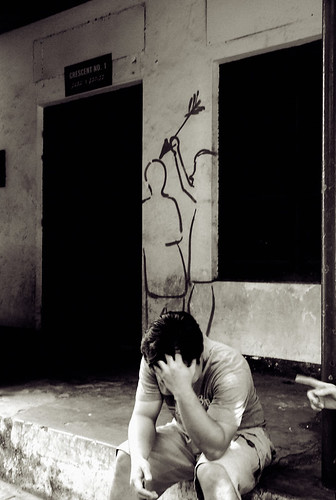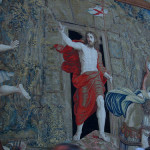We run our website the way we wished the whole internet worked: we provide high quality original content with no ads. We are funded solely by your direct support. Please consider supporting this project.
The Witness of Graffiti (Rocks Crying Out)
On this eve of Easter, we wanted to share something that fit the mood of the time between the crucifixion and the resurrection. D.L. Mayfield wrote this striking piece on the longing for the Kingdom of God in the midst of overwhelming brokenness. We thought it was the perfect reflection for this day suspended between grief and celebration.
From her reflection:
I think Jesus meant it all: that his coming, his way, his kingdom was marked both by celebration and anguish. He knew, more intimately and more deeply than we could ever imagine, the joy of his father’s heart and the suffering of what happens when we purposefully thwart it. He knows about me, my neighbors, this city—how the redemption is so real and good and possible (the rocks cry out) and how the hearts of the broken are barely holding on, while we keep trying to build our own safe fortresses high above the muck (the rocks cry out). He knows it all; and perhaps this is what he was thinking as he looked over Jeruslalem and wept.
In my neighborhood you can’t walk a block without seeing paint splashed on the walls. Some are joyful, hopeful and prophetic. Others are chilling, territorial, anguished. The rocks are crying out, just as Jesus said they would.
Related Reading

Poor and Black in America
Marco via Compfight Drew Hart is someone with a rare voice. I’m sharing the bio from his blog in its entirety because I think knowing some of his story gives authority to his words. Drew Hart has been shaped by both Black Church theology and Anabaptist theology. Drew was raised in an African American Church…
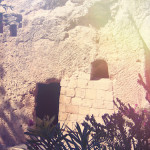
The Hope of the Cross & Resurrection
In a real sense, God has already “raised us up with Christ and seated us with him in the heavenly realms” (Eph 2:6). And while “we do not see everything subject to [us],” the truth of the matter is that, in Christ, we have already been restored to our rightful place as co-rulers with Christ.…
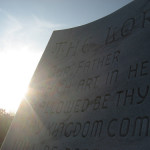
Reflecting on the Lord’s Prayer
Jesus begins the instruction on prayer (Matthew 6:9-13) by telling his disciples to pray for the Father’s name to be “hallowed,” for his kingdom to come, and for his will to be established on earth as it is in heaven. He is, in effect, telling them to pray for the fulfillment of everything his ministry,…
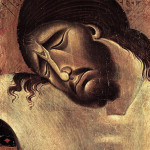
One Word
While I’ve lately been pretty distracted finishing up Benefit of the Doubt (Baker, 2013), my goal is to sprinkle in posts that comment on the distinctive commitments of ReKnew a couple of times a week. I’m presently sharing some thoughts on the second conviction of ReKnew, which is that Jesus Christ is the full and…

Forgiveness in the Christus Victor View of the Atonement
Did Jesus need to die on the cross to satisfy God’s wrath in order for us to be forgiven? Greg discusses the role of forgiveness in the Christus Victor view of the Atonement.

